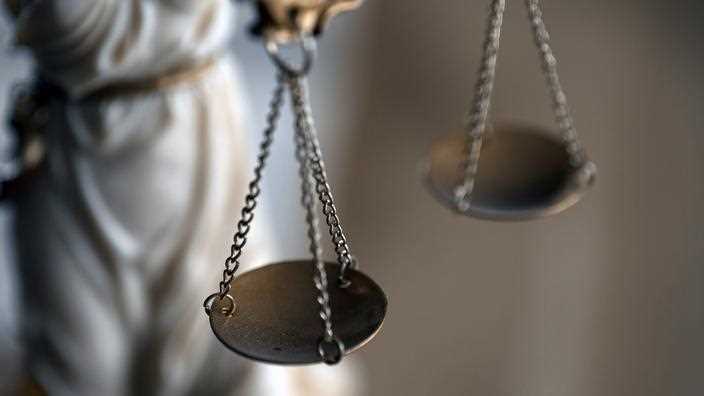The noose is gradually tightening around the authors of “fake president scams“: three Franco-Israelis, suspected of false transfer fraud having caused more than one million euros in damage, are now in the hands of French justice.
Read alsoDeliveries, refunds and fake orders: these scams that flourish as Christmas approaches
Significantly, two of them were extradited on December 7 by Israel, which until recently categorically refused to send its nationals to be held accountable before the courts of other countries. The third was arrested in June 2021 at Roissy-Charles-de-Gaulle airport, after a stay of a few days in Paris.
The three men are suspected of having together defrauded or attempted to defraud companies as well as individuals through “fake money transfer scams» or «fake president scams” during the period of the first confinement. The principle of these scams, which appeared in the 2010s and have largely developed thanks to the Internet, is simple: concerning companies, a usurper pretends to be the boss on the phone or by email to his employees and asks them to transfer money to accounts abroad, discreetly. The transferred funds then quickly disappear into offshore accounts.
150 companies victims of fraud attempts
Regarding individuals, criminals pose as bankers or other financial professionals and boast of high-yield investments. In this case involving the three men, 150 companies were victims of attempted fraud and 43 individuals were defrauded across French territory, Colonel Jean-Paul Douvier, head of the Reims Research Section, told AFP. investigation officer. The cumulative damage is estimated at 1.1 million euros over four months.
Among the companies targeted is a purchasing center for a supermarket chain, which thwarted the fraud attempt and filed a complaint. The company’s director of human resources had been contacted by a person claiming to work at the Public Treasury and to intervene in the context of the VAT deferrals provided for by government aid under the Covid-19 crisis. On the private side, the fraudsters had notably convinced them to invest in parking spaces in Europe or even medical research projects, in particular for Covid-19.
Read alsoPuppies for Giving: When the Good Deal Is Actually a Scam
The investigations, launched in April 2020 by the court of Châlons-en-Champagne (Marne), where one of the first frauds had been committed, quickly made it possible to determine that the suspects were in Israel. In the aftermath, two men residing in a town north of Tel Aviv were arrested by the Israeli judicial authorities who opened a “mirror survey“. First incarcerated in Israel, they then wear an electronic bracelet. One of them recognizes part of the facts.
In June of the same year, another man was arrested as he was about to return to Israel, after spending a few days in Paris. Owner of a currency exchange office, he is suspected of having laundered the sums extorted. Indicted for “organized gang scam», «organized money laundering” and “conspiracyand placed in pre-trial detention, he disputes the facts during his interrogations.
Rare Extras
Almost a year and a half later, on December 7, 2021, Israel extradites the other two suspects to France, where they are also indicted by a Parisian judge from the National Jurisdiction for the Fight against Organized Crime (Junalco), to whom the investigation was transmitted in view of the complexity of the investigations to be carried out abroad. One of them is imprisoned and the other placed under judicial supervision. “It is still quite rare to have extraditions of the defendants“, underlines Colonel Douvier, who salutes a “very good cooperationat the level of investigation and justice with the Israeli authorities.
“Classically, the difficulty in this type of investigation is to convince the authorities of the country concerned to be able to act quickly.“, he explains. Gold, “the question of time is important before these scammers disappear into thin air or move on“. One of the two extradited men tried to challenge his extradition before the French courts, arguing in particular that he should have first been summoned to his address in Israel before being arrested. Deemed admissible, his request was however rejected by the Paris Court of Appeal.
Read alsoCryptocurrency scam: five people indicted
For Me Philippe Ohayon, one of the suspect’s lawyers, the fact that the Court of Appeal found the request admissible and examined it is however “breakthrough», sign of a «increasing scrutiny by judges over extradition requests“. For the lawyer,think twice before requesting extraditionbecause it involves the risk of prolonged detention, sometimes unjustified, due to the cumbersomeness of the procedure.
SEE ALSO – Twitter hack: Hackers stole ‘over $100,000’, expert says
